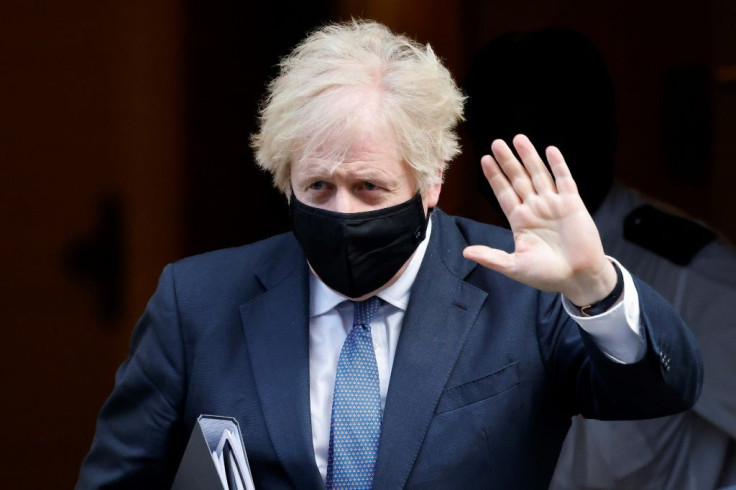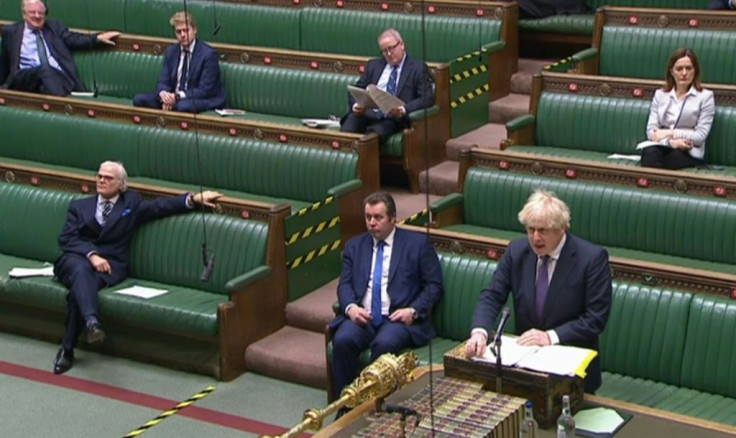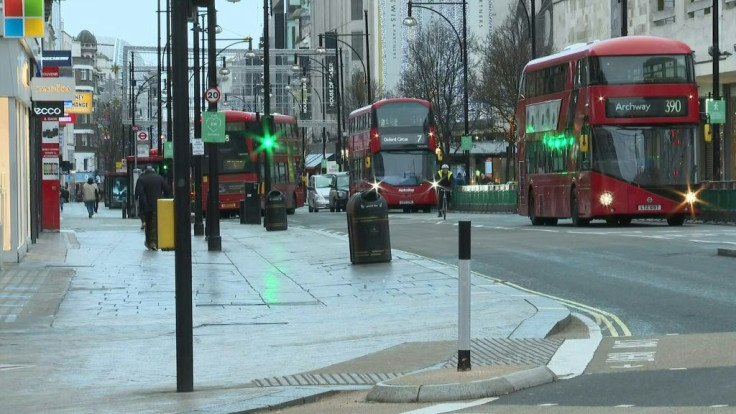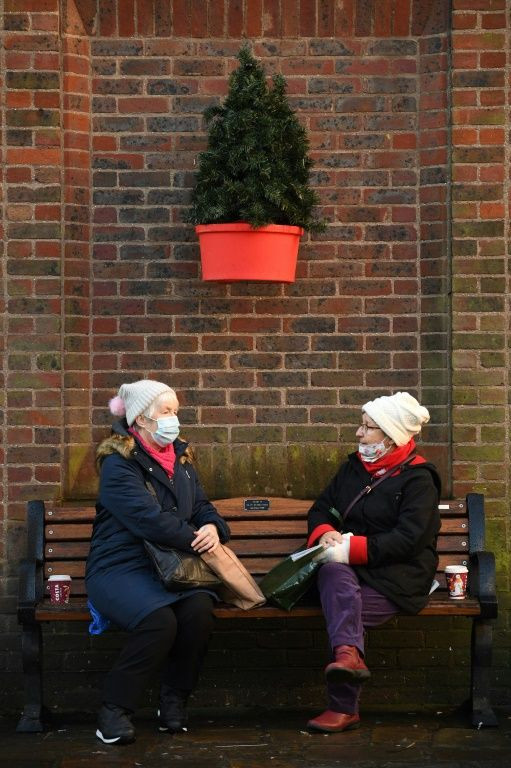UK Vows 'Sprint' To Vaccine Finishing Line
British Prime Minister Boris Johnson on Wednesday said the coronavirus marathon had turned into a hopeful sprint to vaccinate millions in the weeks ahead but justified another lockdown to relieve crisis-hit hospitals.
Hastily recalled lawmakers voted retroactively in favour of the lockdown measures, which came into effect in England overnight, by 524 votes to 16.

Also Wednesday, the government announced 1,041 new deaths from the virus -- the first time fatalities have exceeded 1,000 in a single day since the peak of the pandemic last April.
The new figure means 77,346 people have now died in the UK within 28 days of a positive Covid-19 test, one of the world's worst tolls.
A record 62,322 new cases were also registered in 24 hours, after Johnson warned a variant strain of the virus which emerged in southeast England last month was spreading with "frightening ease and speed"

To curb the spread of the virus, across England schools were shut this week as part of a stay-at-home order, matching the UK's other nations.
Official data show that one in 50 people in England were infected last week, rising to one in 30 in London, and many hospitals say they are swamped with Covid-19 patients.

Johnson told MPs the lockdown would stay in legal force until March 31 but would be reviewed in mid-February.
By then, the government plans to have given a first vaccine dose to about 14 million people including everyone over 80, care home residents and all frontline medics in the National Health Service (NHS).
Britain was the first country to start rolling out vaccines last month with the Pfizer-BioNTech shot, and this week began injections of a home-grown jab developed by Oxford University and AstraZeneca.

So far, over 1.3 million people have received a first dose of one or the other vaccine across the UK, and the government is delaying follow-up doses in order to spread as much protection around the population as possible.
"After the marathon of last year we are indeed now in a sprint, a race to vaccinate the vulnerable faster than the virus can reach them," said Johnson, who was hospitalised in intensive care with Covid-19 last year.
He stressed that Britain, which has now fully left the European Union, had vaccinated more people than the rest of Europe combined.
Any easing of the lockdown would be gradual, Johnson said, adding that local elections due in May were "under review" after they were postponed once already last year.
More than 30,000 people were now in hospital with Covid-19 -- more than at any point in the pandemic -- Health Secretary Matt Hancock said.
Education Secretary Gavin Williamson confirmed children would be assessed by their teachers instead of sitting end-of-year exams.
While the opposition Labour party backed the lockdown, leader Keir Starmer said the worsening situation was not only "bad luck", accusing Johnson of indecision after a series of policy U-turns, including waiting to close schools until the new term had already begun.
© Copyright AFP {{Year}}. All rights reserved.





















